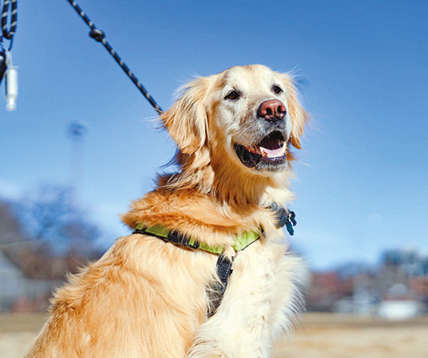They’re all good dogs, it has nothing to do with their breed
No behaviours were restricted to any one breed, even howling, though the study found that behaviour was more strongly associated with breeds like Siberian huskies than with other dogs.

Don’t judge a book by its cover. Don’t judge a dog by its breed. After conducting owner surveys for 18,385 dogs and sequencing the genomes of 2,155 dogs, a group of researchers reported a variety of findings including that for predicting some dog behaviours, breed is essentially useless, and for most, not very good. For instance, one of the clearest findings in the massive, multifaceted study is that breed has no discernible effect on a dog’s reactions to something it finds new or strange.
This behaviour is related to what the non-scientist might call aggression and would seem to cast doubt on breed stereotypes of aggressive dogs, like pit bulls. One thing pit bulls did score high on was human sociability, no surprise to anyone who has seen internet videos of lap-loving pit bulls. Labrador retriever ancestry, on the other hand, didn’t seem to have any significant correlation with human sociability. This is not to say that there are no differences among breeds, or that breed can’t predict some things. If you adopt a Border collie, said Elinor Karlsson of the Broad Institute and the University of Massachusetts Chan Medical School, an expert in dog genomics and an author of the report, the probability that it will be easier to train and interested in toys “is going to be higher than if you adopt a Great Pyrenees.”
But for any given dog you just don’t know — on average, breed accounts for only about 9 percent of the variations in any given dog’s behaviour. And no behaviours were restricted to any one breed, even howling, though the study found that behaviour was more strongly associated with breeds like Siberian huskies than with other dogs. And yet, in what might seem paradoxical at first, the researchers also found that behaviour patterns are strongly inherited. The behaviours they studied had a 25 percent heritability, a complex measure which indicates the influence of genes, but depends on the group of animals studied. But with enough dogs, heritability is a good measure of what’s inherited. In comparing whole genomes, they found several genes that clearly influence behaviour, including one for how friendly dogs are.
What the study means is that dog behaviours are strongly inherited, but that the genes that shape whether your dog is friendly, aggressive or aloof date from long before the 19th century when most modern breeds, like those recognised by the American Kennel Club, were created. Breeding since then has been primarily for physical characteristics.
Kathryn Lord, an evolutionary biologist also of the Broad Institute and the University of Massachusetts Chan Medical School, and another author of the paper, said, “German short-haired pointers were slightly more likely to point or golden retrievers were slightly more likely to retrieve or Siberian huskies to howl.” But buyer, or dog adopter beware. “I’ve known Labradors who’ve howled and Papillons who pointed and greyhounds who retrieved as well as retrievers who didn’t,” Dr. Lord said.
The findings probably won’t surprise people who work closely with dogs, like Dr. Cynthia Otto, director of the Penn Vet Working Dog Center at the University of Pennsylvania. Dr. Otto, who was not involved in the report, said that the study “totally makes sense to me. I think there are some big picture behavioural traits more common in some breeds than others, but the individual variation is so high within a breed.”
Visit news.dtnext.in to explore our interactive epaper!
Download the DT Next app for more exciting features!
Click here for iOS
Click here for Android



